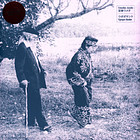The Ainu are an indigenous people that was not recognised as such for a long time. At least in Japan, where the largest parts of the scattered Ainu population are located, it took until 2008 for them to be officially recognised as an ethnic group with a distinct culture. After that, it took another eleven years for the Japanese government to legally commit to supporting and promoting Ainu culture. This country, after all, is not just a colourful bright-lit neon paradise, but at the same time an authoritarian ethno-state with a past as a colonial force. Umeko Ando died in 2004 and did not live to see the Ainu musical traditions she cultivated together with Oki Kano and others such as the Kapiw&Apappo sisters receive the recognition they had long been denied. She also wasn’t there to see how a veritable posthumous hype sparked around her music thanks to a label from the German town of Hamburg. In 2017, Pingipung reissued »Ihunke,« one of her solo albums released shortly before her death, introducing a new audience beyond the circles of so-called world music to the astonishing mix of her mukkuri (a so-called idiophone, comparable to a Jew’s harp) playing, her idiosyncratic vocals, complex grooves and dubby sound design. »Upopo Sanke« was originally released two years after »Ihunke« and thus one year before Ando’s death from cancer, and lists a number of other musicians in its credits in addition to Kano on the Tonkori harp and the Marewrew women’s choir. It is the distillation of the collective work of a shrinking community whose language and traditions have been documented in contemporary form here, uniting the past, the zeitgeist and several perspectives for the future. »Upopo Sanke« is a thoroughly fascinating album, wonderfully complex yet light on its feet. Resistance to disappearance has rarely sounded more beautiful.

Upopo Sanke



